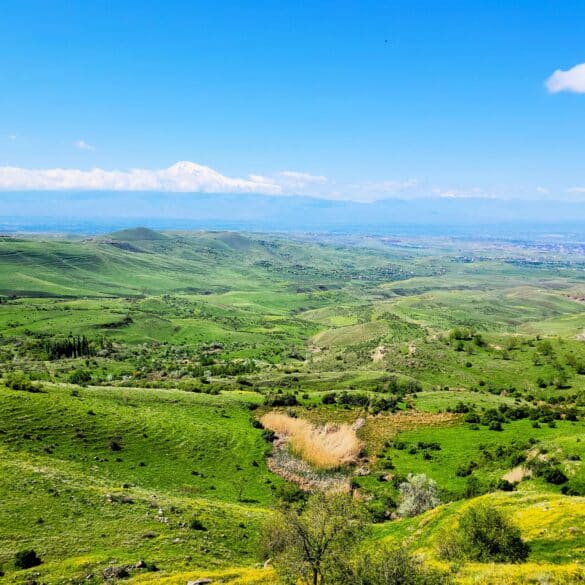How to Secure a UAE Residence Visa via Property Investment
Back in 2018, sitting across from a couple in a bustling Dubai Marina café, I found myself answering a question I’ve since addressed more times than I can count: “Is it actually possible to get residency in the UAE just by buying property?” It struck me—I’d heard it phrased dozens of ways, from hopeful expatriates to seasoned investors wary of regulatory surprises. What started as a fringe curiosity—residence through property—has matured, post-pandemic, into a mainstream migration tool, reshaped by government reforms, global mobility pressures, and a property market that refuses to stand still1. If you’re reading this, chances are you’ve wondered (maybe even passionately debated at a family dinner) whether a UAE address could be more than just a holiday destination or business outpost… but a new home base, tax strategy, or springboard for global opportunity.
Key Takeaway Upfront
In 2024, it is possible to secure a multi-year UAE residence visa by investing in certain types of approved property—if you follow specific rules, avoid common pitfalls, and time your moves to match a fast-changing regulatory environment. But (and this is crucial), not every shiny new apartment qualifies, and the process is much more nuanced than “buy and get a golden ticket.”
Why UAE Property Residency? Beyond the Brochure
If you believe that all expats in the UAE get their residency via company sponsorship or employment, let me gently correct you—these days, real estate is the fastest-growing path, especially for retirees, remote workers, second-home buyers, and global citizens eager to hedge against regional volatility2. In my consulting rounds, what I’ve learned is that personal motivation shapes not only whether a property visa works for you, but how you’ll navigate its quirks. For some, it’s about a safe, tax-advantaged haven; for others, an investment play, or a plan B for family safety. What’s yours?
Did You Know? The United Arab Emirates has issued more than 85,000 residential visas to property investors from over 115 countries since 2019, with the largest numbers coming from India, Russia, China, and the UK—a massive shift from employer-based residency dominance of the past decade.3
Mapping the Property Residency Paths: What Are the Main Options?
Let’s step back for a moment. In my early advisory years, “property visa” meant either a limited, one-year renewable permit or a surreptitious sales pitch from an overzealous broker. Fast-forward, and the UAE now offers a three-path system for residence through property ownership:
- The 2-Year Investor Visa – for properties valued at AED 750,000+ (approx. USD 204,000), on freehold title, renewable as long as property is retained.
- The 5-Year Golden Visa – for individuals (and families) investing in property worth at least AED 2 million (approx. USD 545,000), with pathway to 10-year renewal and added benefits.
- The 10-Year Golden Visa – for exceptional property investment (or a portfolio), usually with additional requirements and often tied to elite “visionary” projects or local business engagement.
Sound straightforward? Hold that thought. I’ve lost count of how many times I’ve had to clarify the difference between these, especially for those assuming all properties qualify (they absolutely don’t), or that you get a multi-entry Schengen visa “thrown in” (you don’t). Details matter—a lot.
Practical Insight
In 2024, the Dubai Land Department, Abu Dhabi Department of Municipalities and Transport, and several “free zones” have fine-tuned their requirements, including stricter due diligence, property handover status, and source-of-funds checks—responding to past loopholes and new global compliance norms4. Knowing which authority controls your visa pathway isn’t just a technicality; it directly determines the paperwork, approval speed, and your legal safety net. This is often where first-timers stumble—or succeed.
Eligibility Criteria: Who Actually Qualifies?
What really strikes me—after years of explaining this to clients and friends—is how often experienced investors overlook tiny eligibility details that make or break residency. Let’s clear away the sales talk and get real. The typical eligibility checklist, as of early 2024, is more than just “own something fancy in Dubai.” Actually, here’s what counts:
- Property Value must match the current minimum: AED 750,000+ (2-year visa route) or AED 2,000,000+ (5-year golden visa). Loans/mortgages work, but only your paid-up portion counts.5
- Freehold Ownership – Leasehold won’t fly for most visas. Title deed, in your name.6
- Ready & Handover Status – “Off-plan” (pre-handover) isn’t enough; completed projects with registered deeds only.
- Developer Approval – Some new zones require developer and DLD verification.
- Background Screening – You need a clean criminal record. Source-of-funds scrutiny is now standard.
- No Shared Purchases (unless family)—Friends pooling funds? Be careful—joint ownership outside of immediate family is often a disqualifier.7
I’ll be honest: a lot of these requirements weren’t enforced until very recently. Previously, you’d occasionally hear about someone getting a residency card for a half-completed apartment they barely saw—those days are gone. I’ve seen applications rejected for missing paperwork, unregistered deeds, and even “creative” loan structures. Trust me, the devil (and your future eligibility) is in the administrative details.
“Residency by investment is not an entitlement—it’s a privilege. Matching legal eligibility with documented financial transparency is now a non-negotiable in every Gulf state, but especially the UAE, post-2023.”
Step-by-Step: The 2024 Application Roadmap
Let’s break it down. I’ve mapped this out with clients (and, honestly, for my own sanity) in dozens of project guides. Remember, actual steps may vary a bit by emirate—but here’s the broad arc:
- Identify Eligible Property – Confirm handover, freehold status, and qualifying value.
- Secure Title Deed – Ensure it’s registered in your name with no outstanding developer issues.
- Prepare Documentation – Passport, title deed, payment receipts, bank statements, and recent photos. Include proof of no criminal record (often from your home country).
- Submit Application – Online or via a registered typing center (the latter is often easier for first-timers).
- Pay Fees – Ranges between AED 7,000–15,000 depending on visa type & emirate.9
- Medical & Biometrics – Standard UAE resident medical screen (TB, HIV), Emirates ID biometrics.
- Visa Issuance – Most 2-year visas process in ~25 working days; Golden Visas may take 4–6 weeks.
Expert Caution
What clients often underestimate is the role of property developer delays and documentation errors. One incomplete NOC (No Objection Certificate), one missing stamp from the DLD, and your entire process grinds to a halt. Always double- (or triple-) check every document. Bureaucracy is the #1 dealbreaker for successful property visa candidates. Don’t let your “forever home” get stuck in paperwork purgatory.
Benefits (and a Few Surprises): What Do You Get?
“Is it worth it?” If I had a dirham for every time I’ve heard that. On paper, the advantages are real—and in practice, even more so for retirees, entrepreneurs, digital nomads, and globally mobile families.
But, these perks aren’t the whole story. That’s why I stress, “read the fine print”—not every bank opens accounts for property visa holders; not every school application is easier on a property visa; and your global tax treatment depends on actual residence—not just a UAE ID card.10 I’ve seen investors surprised by insurance restrictions and nationality-specific banking hurdles, so double-check what applies to you.

Risks, Realities & Pitfalls: Myths vs. Facts
Honestly, this part is what keeps me up at night when I think about the clients who only read glossy brochures. I’m not trying to burst anyone’s bubble, but—and this is important—residency through property is not “set and forget.” There are landmines even seasoned property buyers sometimes don’t spot on first pass. Let’s tackle the biggest ones I’ve seen firsthand.
- Regulatory Shifts. The UAE pivots policy fast. What was allowed last year may not be this year. Off-plan properties have been booted in and out of eligibility five times in recent memory.11
- Market Volatility. I’ve watched property prices in Business Bay dip 20% in a year, only to bounce back unpredictably. Don’t count on capital appreciation alone.
- Overleveraging. Mortgaging over 50% of property value? Only paid-up portions count for visas. Some banks’ loans are not “property visa friendly.”
- Title Disputes. I’ve seen cases where “joint purchase” between friends went south—the result? Visa application denied, property locked in litigation limbo.
- Hidden Costs. Maintenance, service charges, municipality taxes, and fluctuating insurance rates can eat into yields and affect visa renewal if unpaid.
“Too many expat buyers treat property visas as a ‘shortcut’—when in reality, regulatory compliance and market due diligence are absolute essentials, not afterthoughts.”
Best UAE Cities & Projects for Property-Based Residency
As someone who’s researched nearly every major UAE development (and toured far too many show apartments), I can confirm: not all emirates are created equal for property residency candidates.
Did You Know? As of early 2024, Abu Dhabi now allows non-GCC nationals to buy and obtain residency in more than a dozen new neighborhoods, including exclusive waterfront districts. Historically, only GCC citizens could purchase in “prime” zones.13
For my money? Dubai’s international airport, English-speaking services, and structured Golden Visa system still make it the #1 pick for most global investors. Abu Dhabi has surged, though, thanks to more family-friendly options and premium healthcare. Sharjah and Ras Al Khaimah are rising—especially for buyers priced out of Dubai’s hot core or seeking unique lifestyle environments.
Real Experiences: What Actually Happens After You Buy?
Funny thing is, the “real experience” of living in the UAE on a property visa is drastically different depending on whether you use professional relocation assistance or go it alone. Just last year, a retired couple I worked with moved from London to Dubai, fully expecting plug-and-play banking and schooling for their daughter. Instead? Multiple property approval rounds, a scramble for a “local” bank account, a mad dash to get medical insurance up to standard—and weeks spent nervously tracking visa updates online. Ultimately, though, their persistence paid off, and their biggest surprise was how warmly they were welcomed into their neighborhood expat community. “This place feels more like home than we ever expected,” the husband remarked at our recent catch-up.
Pro Tip
Always check the latest official UAE immigration and property guidelines just before purchase—rules can (and do) change within a single buying cycle. What’s valid during your viewing trip might be obsolete by the time you get your title deed. Bookmark official government sources, and consider connecting with a local legal advisor rather than relying solely on broker “assurances.”
The Future of Property Residency in UAE: Trends & Predictions
Having worked in this space long enough to witness four (sometimes dramatic) regulatory revamps, I remain convinced the UAE’s experiment with investment-led migration is far from over. Actually, with the pace of regional transformation, one could argue we’re just getting started. Consider: Dubai’s “Vision 2030” targets a diversified, less oil-dependent economy, and Abu Dhabi’s recent entry into global luxury property markets is no accident14. More relaxing of residency requirements seems likely, not less—especially for “digital nomads” and tech sector expatriates (I’ve already seen drafting notes for new categories).
Looking Forward
Recent webinars with government migration advisors highlight a push towards more digital-first, applicant-friendly procedures (think blockchain-based title verification, remote visa renewal, and AI-powered risk assessment). We can also anticipate sharper anti-money laundering controls, which will make compliance even more vital but should increase investor security. Notably, both Ras Al Khaimah’s “integrated resort zones” and Sharjah’s new freehold laws may spur even more region-wide competition for global talent.15
Practical Call to Action
If you’re considering this route: Do your due diligence and get professional legal review—not just a broker sales presentation. The cost of mistakes is rising as the system matures, but so are the potential long-term rewards. Every client’s risk tolerance, timeline, and desired lifestyle are different; your path should be too. Lean on recent first-person accounts, continually verify legal changes, and don’t be afraid to ask hard questions—even if they seem “pessimistic” at first. Those are the questions that protect your investment (and your family’s future peace of mind).
“For globally minded investors, property-led residency offers both golden opportunity and real regulatory risk. The only constant in the UAE is change—embrace flexibility, but always demand clarity.”
Common Questions & Fast Facts
- “Can I rent out my visa-qualified property?” Yes, for most freehold properties—rental income counts as legal under UAE law.
- “What about Sharia law and inheritance?” Expatriates may need special wills to ensure property passes to heirs as intended—seek expert legal advice.
- “Does my home country allow dual tax residence?” This depends—always consult an international tax specialist about implications for your citizenship(s).
- “Is a property visa pathway right for digital nomads?” Usually, yes—but upcoming remote worker categories could be even better depending on sector and family structure.
Conclusion: Your New Chapter in the UAE?
I’ll be completely honest: every time I walk a client through this journey, there’s a moment of “second thought”—a pause where the weight of commitment really sets in. And that’s exactly as it should be. Property-based residency isn’t for everyone, nor is it an automatic ticket to wealth or stress-free living. It is a potentially life-changing step with roots in rigorous planning, real legal diligence, and (if you do it thoughtfully) deep, authentic opportunity for new beginnings. My own learning has evolved: I used to believe it was all about property value; nowadays, I know it’s more about lifestyle fit and regulatory agility.
Take the Next Step
Are you ready to weigh up the opportunity for yourself? Reach out to trusted advisors, request real stories from recent applicants, and always, always demand official documentation at every stage. In a world where borders shift and new opportunities arise, a well-chosen UAE property—and a well-planned migration path—might just be the edge you’re looking for.
References



